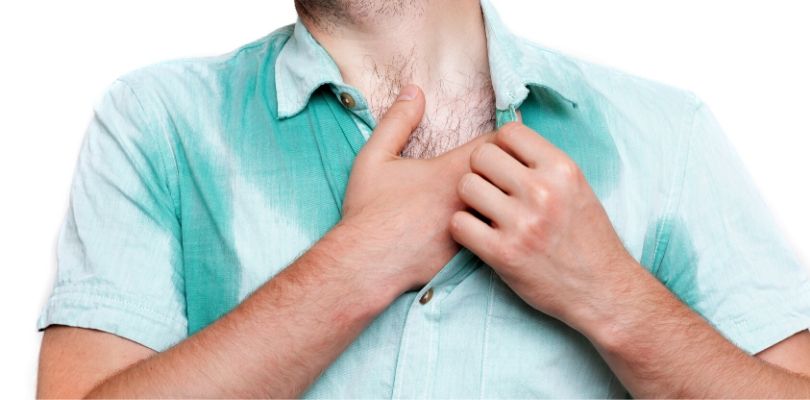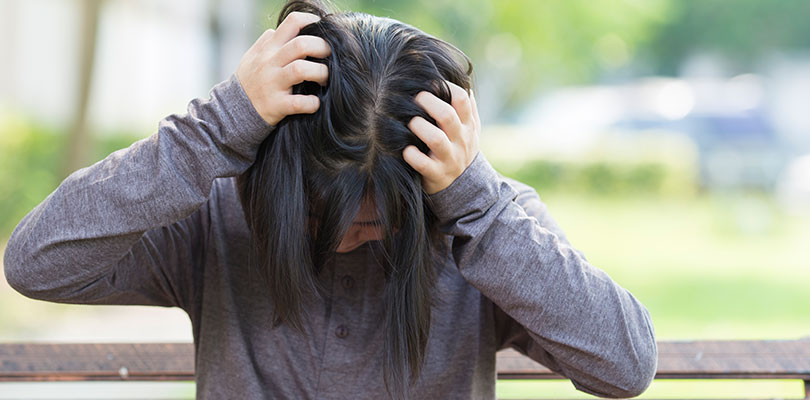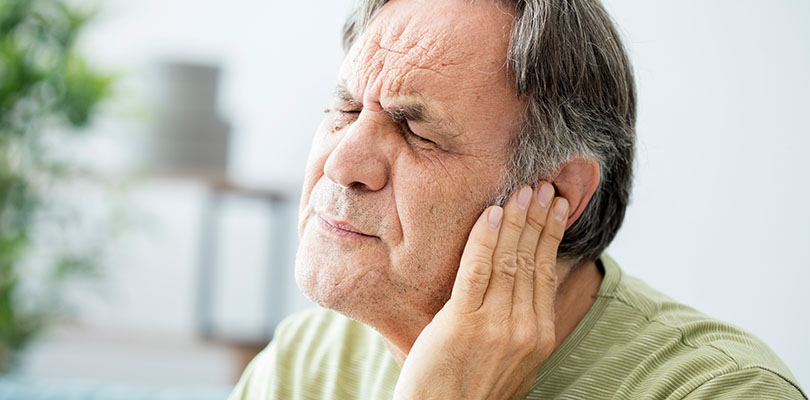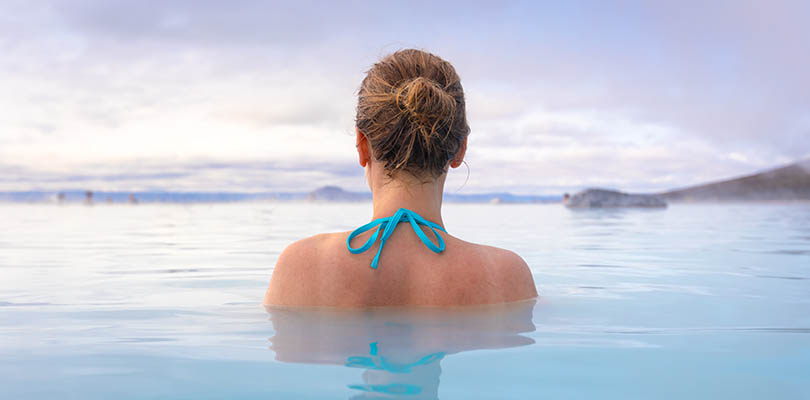How to Stop Sweating
You expect sweat to show up sometimes, like during a workout. Other times sweat starts forming when you are nervous, like when you are about to give a presentation. This can be embarrassing, so it is good to know how to stop sweating. There are different kinds of sweat which require different methods to stop sweat from happening.
What Causes Sweating?
There are millions of sweat glands distributed over our bodies. It is no wonder we are all prone to sweat from time to time. There are two types of sweat glands and they are activated by nerves responding to stimuli. This is when the brain tells the body what it needs to do. It could be a response to events like shifting hormones, emotions, or exertion.
The primary function of sweat is to protect the body from overheating. This type of sweat is regular sweat that is released by the eccrine sweat glands. When the body produces this type of sweat, it sits on top of the skin and when the moisture evaporates, the body’s temperature lowers.
The other type of sweat occurs as an emotional or stress response, like anxiety. This sweat comes from the apocrine glands. These glands produce sweat that is a bit thicker and made of fatty acids and proteins. It does not evaporate as quickly as regular sweat.
Excess Sweating
An overabundance of sweating is called excess sweating or hyperhidrosis. Like normal sweat, the sweat glands respond to stimuli, but with hyperhidrosis, they overreact and produce more sweat than necessary. In hyperhidrosis, sweat glands do not really turn “off”. With excess sweating, one specific area or the whole body can be affected. It’s most active in the hands, feet, armpits and groin due to the higher concentration of sweat glands in these areas.
Antiperspirants and Deodorants
Antiperspirants can only do so much to make you stop sweating and deodorant only covers up odor. Antiperspirants work by plugging the sweat glands, which helps reduce the watermarks sweat leaves on clothing. This blockage sends messages throughout your body to signal that it needs to stop producing so much sweat.
Natural Ways to Stop Sweating
Most antiperspirants contain toxins, but there are some natural approaches that you can try to reduce sweating. There is little research to recommend natural remedies, however, some people swear by their effectiveness. Natural remedies include:
- Herbal substances like sage tea or sage tablets, chamomile, valerian root and St. John’s Wort
- Acupuncture
- Biofeedback
- Hypnosis
- Relaxation techniques like exercise, meditation and therapy
Home Remedies to Minimize Sweating
Your solution to excess sweat may be in one of your cupboards at home. There are many ingredients that can be found in your kitchen, which include:
- Apple cider vinegar. Drinking a vinegar concoction or applying apple cider vinegar to your sweaty areas each day removes bacteria and helps close pores.
- Tomato juice. Tomato-rich diets or dinking tomato juice can shrink your pores and can help control sweating.
- Green tea. Drinking green tea keeps you calm, and the tea contains both magnesium and vitamin B which constricts your sweat glands.
- Baking soda. This absorbs water and counteracts the acids in sweat which is why you will find it as an ingredient in some natural deodorants.
- Talcum powder. A dusting of talcum powder on sweaty areas helps slow bacterial growth and minimize odor.
- Tea tree oil. Like apple cider vinegar, tea tree oil acts as an astringent, when you apply this oil to your underarms you should see reduced sweating after a few days.
- Coconut oil. Lauric acid in coconut oil kills sweat-causing bacteria.
- Lemon. Naturally reduces excessive sweating because of its acidity. Leaving lemon juice on your underarms for thirty minutes helps reduce sweat, especially if you mix the juice with baking soda.
- Salt. Salt or salt crystals are known to absorb sweat, block pores and keep skin dry. Rub the salt crystals onto your skin and rinse off.
If you suspect your little one may be suffering from baby constipation, then it’s essential to understand the signs and symptoms and treatment options.
What You Eat Affects How You Sweat
Another reason to eat healthy is to minimize your sweat output. Some changes to your diet that may help include avoiding spicy foods and caffeine, eating smaller meals more frequently throughout the day and including potassium-rich foods in your diet to push water out of the body. Some say that a gluten-free diet also reduces sweat.
Your Clothes May Contribute to Sweat
What you wear may make you sweat more or less. Loose clothing is always recommended. Material is important too and you should avoid synthetic fibers like nylon. For sweaty feet, choose socks that are made of natural fibers since they are better at absorbing moisture and shoes that are made from natural materials.
Medication, Prescriptions and Medical Methods to Stop Sweating
Of course, if a natural or home remedy does not work, you can see a doctor for more advanced solutions to reduce sweating. They may suggest:
- Prescription cloth wipes containing glypyrronium tosylate.
- Prescription medicines to prevent the sweat glands from producing sweat.
- Iontophoresis treatment for those who sweat from the hands and feet. This procedure uses electric current at a low voltage in a pan of water where you immerse your hands or feet. The electric current slows down sweat glands temporarily.
- Botulinum toxin injections into the underarms to temporarily block a chemical in the body that stimulates the sweat glands.
- Surgery to remove sweat glands from the underarms.
- Surgery to stop the nerve signals that your body sends to the sweat glands by either cutting or destroying the nerves.
When to Seek Medical Care
Always keep your doctor up to date on the remedies you are considering, including natural remedies, because the products, herbs and medicines may not interact well together. You should make an appointment with your doctor if you start to sweat more than usual, your sweating disrupts your daily routine, or you experience night sweats. Seek immediate medical attention if sweating comes with chills, light-headedness, chest pain, nausea, or a temperature over 40F.
Sweat does not have to be embarrassing. By trying out some of the methods listed above, you should find solutions on how to sweat less.







